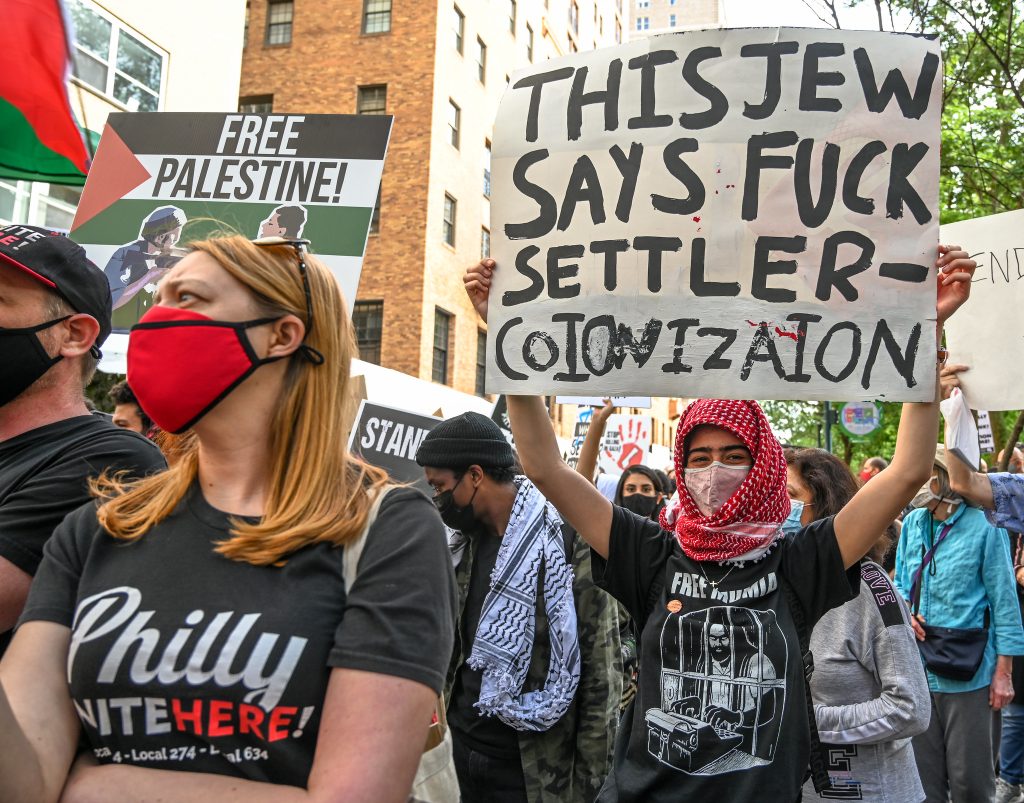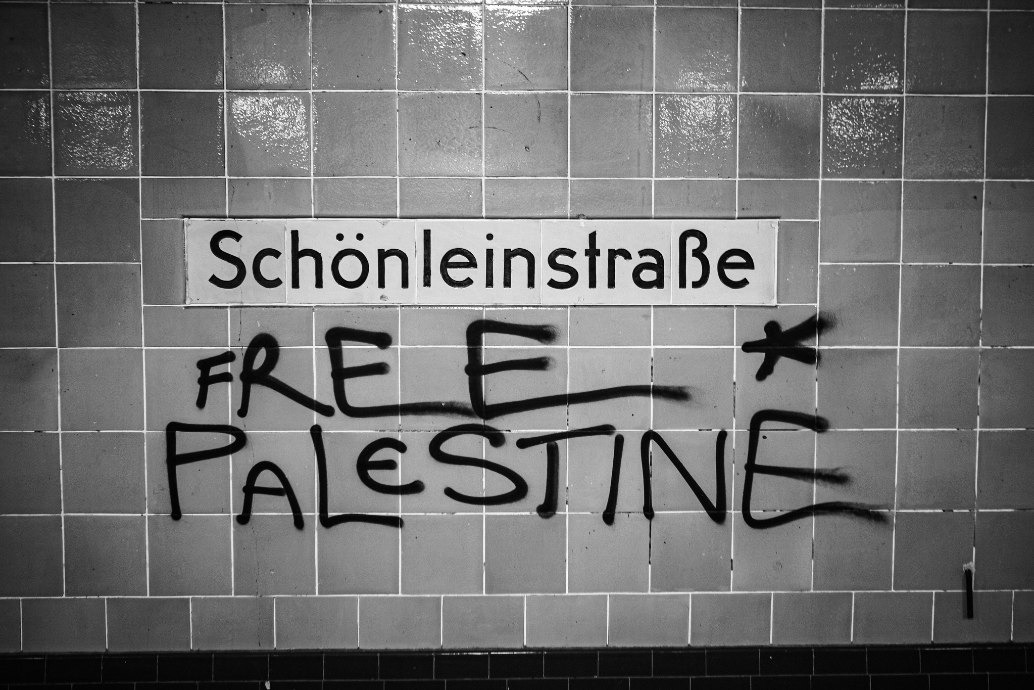Demostrando ningún interés en el derecho internacional, el canciller alemán Olaf Scholz bloqueó la declaración sobre la ocupación por parte de Israel del Territorio Palestino a pedido de la Corte Internacional de Justicia con el fin de revisar la legalidad de tal toma. Otros 57 estados, incluidos EE. UU., Francia y Gran Bretaña, presentaron sus evaluaciones por escrito en La Haya antes de la fecha límite. Tras la abstención alemana, se produjo un gran vacío político.
Por Carolina Menéndez Trucco
Es hora de hablar de Israel-Palestina con lógica humana, pero sobre todo desde el materialismo histórico. La práctica de Israel es prueba decisiva de la verdad. Como bien precisa la carta abierta que más de mil intelectuales y científicos, en su mayoría judíos, firmaron e hicieron pública hace unas semanas: “No puede haber democracia para los judíos en Israel mientras los palestinos vivan bajo un régimen de apartheid”. De igual modo, lo ha reconocido en su informe la organización de derechos humanos Human Rights Watch, entre tantas otras. Aun así, el actual gobierno de ultraderecha y antipalestino israelí no se deja intimidar y sigue permitiendo asentamientos ilegales en el territorio ocupado. Los hechos hablan por sí mismos. Israel conquistó Cisjordania, la Franja de Gaza y Jerusalén Este en 1967 en la llamada Guerra de los Seis Días con Egipto. Desde entonces, su ejército ha sido omnipresente en la región y no deja de masacrar milicianos y civiles palestinos, avanzando cada vez más sobre sus territorios.
Los derechos humanos son una cuestión de carácter intrínsecamente internacional. ¿Qué hace Alemania frente a ello? La vista gorda. Recientemente, el canciller Olaf Scholz bloqueó un dictamen del Ministerio Federal de Relaciones Exteriores que, a pedido de la Corte Internacional de Justicia de la ONU, evaluó la ocupación israelí del Territorio Palestino de acuerdo con el derecho internacional. Según algunas de las pocas voces a favor de Palestina que se alzan en suelo germano, la coalición semáforo[1] que gobierna Alemania desde diciembre de 2021 ha dejado entrever ciertas diferencias. Las cautelosas expresiones de preocupación que brotaron del seno del partido ecologista verde (Bündnis 90/Die Grünen), en boca de su ministra de Relaciones Exteriores, Annalena Baerbock, de cualquier forma, no hicieron mella. A fin de cuentas, a raíz de la intervención directa de la Cancillería, ni la ministra ambientalista ni el resto del gabinete socialdemócrata (SPD) y liberal (FDP) se promulgó acerca del tema. Como bien dicen, el que calla, otorga.
La utopía de un alto el fuego
La acción violenta sionista viene planificada desde hace tiempo. Mientras sigue elevándose la cifra de muertos tras reiteradas escaladas bélicas e inestables altos de fuego, las últimas negociaciones en Egipto se estancaron y lamentablemente Israel reanudó los ataques después de la entrada en vigor de la última tregua. Hasta 139 palestinos han muerto como consecuencia de las operaciones israelíes en los territorios palestinos desde principios de 2023, de los cuales al menos 25 murieron en la Franja de Gaza. La situación en Cisjordania, en especial en las ciudades de Jenín y Naplusa, se ha visto agravada por las continuas incursiones israelíes. De acuerdo con el Ministerio de Salud palestino, en enero y febrero de 2023 se registró el mayor número de palestinos asesinados desde el año 2000.
El arrebato del poder
Afuera tienen lugar manifestaciones, adentro se votan reformas judiciales: el primer ministro israelí, Benjamín Netanyahu, está inclinando a su país cada vez más hacia la derecha. A pesar de las protestas masivas, el gobierno ultraderechista, antipalestino y sionista quiso seguir adelante con sus planes para debilitar al poder judicial frente a la Knéset (el parlamento unicameral israelí) y al gobierno. Su hilo conductor: la disolución de los logros de los derechos civiles y la abolición de la ya débil separación de poderes.
El supuesto golpe judicial desencadenó reacciones de rechazo en todo el mundo y una protesta sostenida de cientos de miles de personas sin precedentes en Israel. De allí que se haya estancado por el momento. Después de todo, el desmantelamiento de derechos democráticos en Israel debería afectar la estrategia de relaciones públicas con Alemania y el resto de los países, aun cuando los apoyos comerciales y de poder prevalezcan en la balanza.

Una visión parcial
En vista del discurso informativo, la desproporcionalidad de las coberturas es notable. Ni una sola plataforma de noticias alemana mencionó, por ejemplo, nada acerca de la mayor operación militar en Cisjordania desde 2005: a principios de este año, un solo ataque israelí en Jenín mató a nueve personas, entre ellas una niña de 16 años y una mujer de 61. Dicho terror debe ser condenado. Pero los informes de los principales medios en Alemania y la mayoría de las grandes emisoras internacionales están totalmente distorsionados con respecto al tema: ubican los ataques violentos en el contexto del lado palestino y solo presentan la perspectiva israelí. El balance se inclina entonces hacia el lado del aliado de Occidente. No solo hablamos de Estados Unidos: Israel tiene desde hace tiempo relaciones económicas y militares estrechas con países de Europa Occidental, sobre todo Alemania. Es un importante comprador de sus armas, y ahora viceversa. Acaba de cerrar el mayor acuerdo defensivo de su historia a partir de venderle un sistema antimisiles israelí-norteamericano.
En el marco de un armamentismo global generalizado, el hecho de que en Israel se haya elegido un gobierno corrupto, de extrema derecha, fascista e impulsado por la agenda anti-palestina de los ultrarreligiosos, que es en parte responsable de la escalada en la región, aunque intente pasar desapercibido, no es fortuito.
A la habitual imagen unilateral en los medios alemanes acerca del conflicto, también la propia población está dividida, según las encuestas. Si bien menos de la mitad de los consultados en un sondeo nacional reconoce tener una responsabilidad especial para con el pueblo judío por las atrocidades cometidas durante el nazismo, tan solo un 36% equipara la actual política israelí hacia los palestinos con el trato a los judíos durante la era nazi. Y mientras que un 62% califica negativamente al gobierno ultraconservador de Netanyahu, otro 46 % tiene una imagen positiva de Israel y solo un 34 % ve al país con malos ojos. Al menos un 54 % ve a la política israelí hacia los palestinos como injusta.
Del recuento al compromiso. Desde una perspectiva alemana, siempre debe tenerse en cuenta la historia, en especial ante el resurgimiento neonazi actual. Sin embargo, la responsabilidad del Holocausto no puede devenir en indiferencia hacia el conflicto palestino, ni mucho menos eximir a Alemania de tomar una posición.
El costo de mirar hacia otro lado
El silencio entonces no debería convertirse en una posición oficial alemana ni de nadie, pero por desgracia el sistema cerrado de la diplomacia de consenso germano-israelí no llama a la injusticia, al apartheid y a los hechos por su nombre. En vez de reconocer la trágica situación palestina y apoyar con compromiso su lucha, una gran mayoría opta por no tomar cartas en el asunto.
Puntualmente, hoy el fenómeno se aplica en Israel. La injusticia silenciosa y en general reprimida por la mayoría de los medios y de gran parte de la población se asienta en la metáfora que da nombre al manifiesto progresista presentado por los 1.500 profesionales judíos de Estados Unidos e Israel-Palestina: “El elefante en el bazar”. Con todo, no hay que bajar los brazos en la lucha en defensa de la causa palestina y por un mundo mejor. En palabras de León Trotsky: “exponer a los oprimidos la verdad sobre la situación es abrirles el camino de la revolución”.
Solidaridad y cambio revolucionario
Pensar lo que ocurre desde una perspectiva de empatía socialista proporciona una clave crucial para comprender con profundidad la estructura y el cambio de una sociedad. Así pues, estas secuelas de la historia y el presente han traído consecuencias trágicas y paradójicas como en Medio Oriente: por un lado, un creciente desequilibrio de poder israelí, y por otro, una causa justa palestina que merece apoyo a escala global.
Por ello, hoy más que nunca, es necesario denunciar la atroz ocupación israelí. Eso quiere decir que todos los países deberían plantear el reconocimiento palestino, un hecho que supondría un importante paso adelante para desenmascarar la impunidad de Israel a nivel internacional.
A partir de allí, la lucha debe seguir hasta desmantelar el Estado sionista de Israel y recuperar una Palestina libre y democrática en todo su territorio original, en donde puedan vivir en paz todos los pueblos y credos. Como bien se concluyó durante el 2º Congreso de la Liga Internacional Socialista (LIS): “El camino para lograr esa salida es la lucha conjunta de la heroica resistencia palestina y de los pueblos árabes de la región, por encima de sus gobiernos cómplices de Israel, más el apoyo de los judíos democráticos antisionistas que están entre quienes hoy se movilizan en Israel contra el gobierno de Netanyahu y la ultraderecha y en ese proceso construir un fuerte partido revolucionario.”
[1] Es llamada así por los colores que identifican a los tres partidos que la integran.





